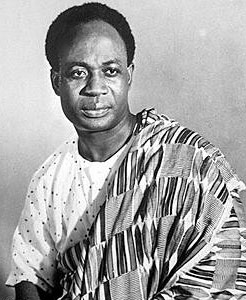
Room: 5A41 (5th floor)
Registration is required for this lecture.
Independent Ghana has repeatedly been seen as a test-case in economic policy in Sub-Saharan Africa. The country’s record of economic growth has been dramatic: disappointing and then disastrous to 1983, but steady expansion at well above the regional average after that, through to the beginning of oil exports in 2011. Today, the Akuffo-Addo government has renewed the pursuit of industrialization.
Gareth Austin analyses in this seminar Ghana’s economic policies and performance in economic and political economy frames. In economic terms, the aim is to explain the dramatic changes in the country’s overall fortunes, and to examine the proposition that there has still been no structural transformation. This will be considered using data on occupations and demography as well as output and living standards. It will be seen that there has been significant structural change within the economy, despite the absence of a manufacturing take-off. In political economy terms, the paper discusses the significance of Ghana’s experiences for various influential, highly pessimistic, models of African politics and economic decision-making, notably those of R.H. Bates (1981, 2008). It is argued here that the Ghana case contradicts the usual explanation for why African countries adopted Structural Adjustment; more generally, its history suggests that economic growth matters for African regimes at least as much as redistributing the current stock of wealth.
About the speaker
After teaching at a harambee school in Kenya, Prof. Gareth Austin read History at Cambridge and proceeded to the PhD Economic History at Birmingham. He has worked at the University of Birmingham, the University of Ghana, the Institute of Commonwealth Studies (University of London), and the London School of Economics (economic history department), and the Graduate Institute of International and Development Studies in Geneva. He took up the chair of Economic History at Cambridge on 1 January 2016, dividing his time between Cambridge and Geneva until becoming full-time in Cambridge on 1 September 2016. Austin is a former editor of the Journal of African History, a former president of the European Network in Universal and Global History, and was a founder of the Journal of Global History.
This lecture is hosted by the LeidenGlobal partner the African Studies Centre Leiden (ASCL).
The African Studies Centre Leiden is a knowledge institute that undertakes research and is involved in teaching about Africa and aims to promote a better understanding of and insight into historical, current and future developments in Africa.
For more information about this lecture please visit the website.
